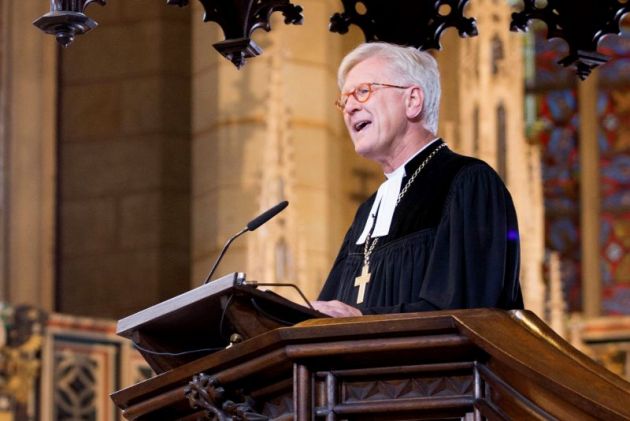Speaking truth to power: World churches leader spells it out

The way churches speak to people in power must take different dimensions into account and poses complex questions, the World Council of Churches moderator, Bishop Heinrich Bedford-Strohm, has told the council's executive committee.
"The way we speak to people in power as churches must take different dimensions into account. What weight each one of them gets is, again, highly contextual," said Bedford-Strohm speaking in Paralimni, Cyprus, at the Nov. 21-26 meeting of one the WCC's main governing bodies, its executive committee.
"How can the churches critically accompany political processes?" he asked. "When should they speak up to power in ways which are more shocking than comforting and sustaining?"
Bedford-Strohm noted that a passion for justice characterizes prophetic speech.
"Its goal must be the actual improvement of the situation of the most disadvantaged. The strongly biblically-based concept of the 'preferential option for the poor' has emerged originally from Latin American liberation theology in the 1970s.
"When we reflect upon what we say to people in power, the preferential option for the poor must guide us."
Prophetic speech to people whose hearts and mind you want to win, in biblical perspective, is 'connected criticism' he said quoting Michael Walzer a political theorist at Princeton University. "It is based on relationship, on respect, maybe even love, for those to whom it is addressed," said Bedford-Strohm.
He thanked the WCC general secretary, Rev. Jerry Pillay, for his "tireless effort" to meet political leaders whether or not such meetings were a joy. "This is exactly speaking truth to power in the context of relationship."
Bedford-Strohm noted, "Prophetic speech must always include prudence. It must reflect upon its consequences for the potential of political change in favor of the poor and disadvantaged. Radical statements are not automatically prophetic witness in the biblical sense. They must always be in the service of God's will to overcome injustice and suffering, especially of the most vulnerable."
"Therefore, we must always ask ourselves: Is our speech really in the service of God's call to make a difference?" he said. "Or is it only an expression of one's personal anger?"
The WCC moderator also suggested that churches have a distinctive function as agents in civil society.
"They know about the indisputable moral truths on which a society depends such as the dignity of every human being and the preference of the poor for which the biblical prophets stand," he said.
"At the same time, they see the world as a whole reconciled by God in Jesus Christ and therefore stand for the inclusion of each member of society into a commonwealth based on those moral truths."
The WCC executive committee convened in Cyprus, from Nov. 21-26 plan for 2025, including the budget and implementation of WCC strategies.
The gathering was to focus on peace-building in the context of occupation, war, and conflicts.
